Parvati’s Ire – the Reason for Ganapati’s Birth
Parvati was furious. Nandi had done it again! Despite repeatedly warning him, Nandi had left her work half-done and run off behind Shiva to watch a wrestling match.
From her bath, she heard her husband’s voice as he called out to Nandi, who didn’t even bother to check with her before leaving. He had mutely (and perhaps happily, too) followed Shiva. The worst thing was the desolation she experienced each time something like this happened. She felt alone, unwanted, and uncared for.
Parvati’s orders and commands always took second place in Mount Kailash to Shiva’s. Shiva’s bidding was considered more prominent than hers. Then, why did Shiva carry on the pretence of being an ‘Ardhanarishwara’, giving equal importance to male and female? He preached, “There is no Shiva without Shakti,” to everyone. Parvati had many names, one of them being Shakti.
But when she approached him to resolve the inequality meted out to her by Nandi and everyone else at Kailash, Shiva merely chuckled (she thought condescendingly), saying that she was making a mountain out of a molehill.
Parvati decided to take matters into her own hands. She needed someone who would treat her and her commands above Shiva’s. She wondered which Gana would serve her unconditionally. As she went through the list of the senior-level Ganas, she realised no one fit her bill. Everyone on Kailash had come to believe that Shiva was above Shakti.
Parvati loved her husband and the beautiful cave home he had built for her in Mount Kailash. She also liked the people who worked for her. All of them were respectful and affectionate to her, and she returned that love and respect in double measure.
And yet, she felt alone, empty, and desolate. Frequently, she wondered why. And today’s behaviour of Nandi accentuated this feeling of loneliness and being left out more than ever. She had specifically told him not to leave without letting her know, even if Shiva called for him.
The Creation of Ganapati
Her mind overheard her heart’s desire. Parvati realised that the need to be treated as an equal with the man of the house was important to her. This unsatiated need made her feel inadequate and incomplete, a feeling that overflowed into the other aspects of her life. No matter how well she did her job, she found herself wanting. It was time to make herself complete.
Shakti was no stranger to divine powers. After all, she and her husband were among the three foremost divine couples in the Hindu world, the Trimurtis and their consorts.
She thought, “If I cannot use my divine power now, a day will surely come when I will regret my hesitation.”
She got down to work. She got some turmeric paste and moulded the figure of a handsome boy. Parvati’s joy multiplied at each stage as the figure evolved under the magic of her hands. Her son was slowly but surely growing out of the depths of her soul. This boy would be a part of her. He would put her and her needs above everyone else’s.
Soon, the boy’s figure was finished. He was handsome, with smooth, unblemished skin and sharp features. His eyes seemed to shine with a light of their own. She ran her fingers through the whole statue, ensuring every little part felt the life force of her touch.
She stood back and admired her work of art for a while. It was now time for the final touch. She placed her right palm on his chest and chanted a few magic words. She then breathed into him.
As the mother’s breath of life touched the boy’s heart, he came to life. He opened his beautiful black eyes and saw his mother looking at him. Seeing his smile for the first time, Parvati’s heart seemed to burst with happiness.
She hugged her handsome son as tears of joy sprang forth from her eyes and flowed copiously down her soft, luscious cheeks.
He hugged her back and said, “Mother!”
That’s it! That was all that Parvati needed to complete her, the sound of her son calling her “mother!”
She wished Shiva were here so they could both revel in the birth of their son. Shiva and Parvati had gotten their moniker “ardhanarishwara” for a reason. Their life forces intermingle with each other. She had half of her husband’s energy, and he had half of hers. So this child was theirs and not her’s alone.
And yet, a tiny doubt bothered her. Will her husband accept this child as his? Or would he feel offended that she chose to bring a son into the world without his consent?
But Parvati had to wait for her husband’s reaction because he had gone out and was not expected to return home until late in the day.
She decided to focus on her son for the moment and revel in the joy of birthing him. She told him, “Welcome home, my dear boy!” She also needed to test him, the most crucial test for her. So, she decided on a plan.
“Now I need to go and have a bath in the spring that flows in our backyard. I want you to stand guard outside the main door of our home and not let anyone into the house until I finish my bath.”
“As you command, mother!” Her son replied.
She gave him another hug and a golden staff as a token of her authority to stop anyone who tried to enter her home. Her son took his position in front of the main door. His mother went in and closed the door behind her.
Shiva Hurls His Trident at Ganapati

Soon, Shiva returned with Nandi.
Both were discussing the intricacies of the wrestling match they saw today. They were so engrossed in their conversation that neither of them noticed the young boy standing at the entrance to the house until they were very close.
“You can’t go in,” said the boy politely, using the staff to bar them.
Shiva was taken aback. He asked in surprise, ” Who are you?”
The boy replied, ” I am my mother’s son. I am following her orders.”
Shiva and Nandi exchanged condescending smiles and moved towards the door, ignoring the boy’s request.
“Don’t you dare enter the house?” This time, the boy’s voice was not so polite. It had an unmistakable commanding tone.
Shiva glared at the lad. “You dare stop me from entering my own home! I am the master of this house. I order you to step back and let me enter.”
“I take orders from no one but my mother!”
“Do you know who I am?”
“You can be anyone. But, my mother’s commands come above all else.”
“Nandi, move him out of my way!” Thundered Shiva.
Nandi walked towards the boy and tried to push him down. His physical strength was legendary in Kailash. Yet, he couldn’t move the boy an inch from his position. He seemed glued to the ground like a mountain.
Nandi pushed with all his might. The boy didn’t even struggle for breath as he leaned forward and easily countered Nandi’s mighty push.
Strangely, Shiva was angered at the sight of the boy holding back Nandi with such easy alacrity. He never stopped to wonder who this strong boy might be! At the moment, livid rage was the only thing that mattered.
He took out his trident and hurled it, thoughtlessly aiming at the boy’s neck. The severed head rolled off and lay at a short distance from the body.
Ganapati Gets His Due
Suddenly, a feeling of dread overpowered Shiva. Rage was replaced with an inexplicable fear of impending doom.
The door opened, and Parvati’s voice floated through: “I’ve had my bath, my son. You can let people in now.”
As her eyes fell on the headless body of her son, Parvati agonised screams spread like a terrifying storm threatening to uproot Mount Kailash and everything on it.
Shiva’s face turned pale as he whispered, “Our son!”
Shiva and Shakti’s powers were inextricably intertwined; anything created by either one became theirs. Despite her agony, Parvati did not miss the “our son.” She chided herself for doubting her completeness. She ran to her husband, and they held each other close.
Then she said in a steely voice, “You need to get our son back!”
“Yes! I should!” replied Shiva in an equally determined voice.
Word had spread through Kailash and the rest of Devaloka. Everyone who was anyone was there, standing in respectful silence as they watched one of their favourite divine couples share a few moments of extreme grief.
Shiva commanded, “Nandi, I have to get my son back. I want the head of the first creature lying on the ground with its head facing north. Send your ganas in all directions and find me a suitable head.”
The head of a recently deceased baby elephant was brought back. It was Shiva’s turn to breathe his life force into his son. He placed the head of the baby elephant on the headless body and brought his son back to life. The world rejoiced as the elephant-headed boy got up from the ground and prostrated before his parents.
Shiva made him the head of the Ganas and gave him the name of Ganapathi. This divine child went on to perform multiple miraculous deeds, earning the epithet of “The Remover of Obstacles”, making him one of the most revered and loved divinities among the pantheons of gods and goddesses worshipped in India.
Author’s Note:
This version of the birth of Ganapati or Ganesha is found in the Padma Purana. There are other versions of the same story. I chose this version because it allows me to discuss Shiva and Parvati’s Ardhanarishvara form. Also, many popular versions discuss a massive battle between the devas and Ganapati when he refuses to let Shiva enter his home. I chose to leave that out.
Pictures created by MS-Copilot
Glossary:
Ardhanareeshwara – a form of Shiva where half of a male and half of a female body (representing himself and his wife Parvati) are fused.
Ganas – An army of Celestial beings living on Mount Kailash, devoted to Shiva and Parvati and their family.
Trimurtis – translates to “ the three idols,” namely Brahma, the Creator (his wife, Saraswati, the Goddess of Learning), Vishnu, the Preserver (his wife, Lakshmi, the Goddess of Wealth), and Shiva, the Destroyer (his wife, Parvati, the Goddess of Power and Strength).
This blog post is part of ‘Blogaberry Dazzle’
hosted by Cindy D’Silva and Noor Anand Chawla
in collaboration with Mister Tikku.


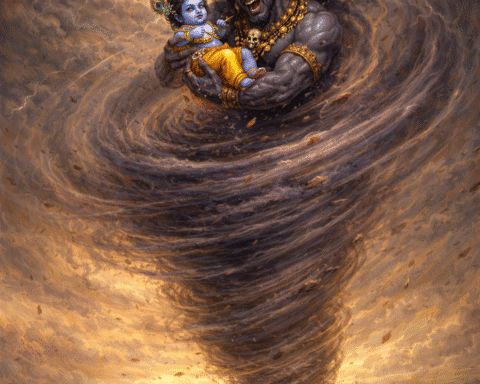
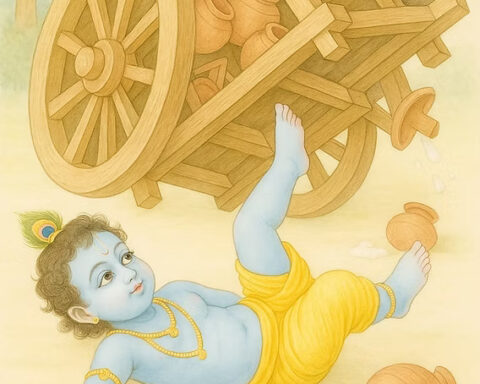
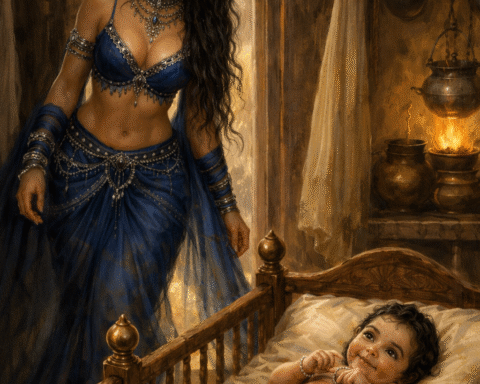
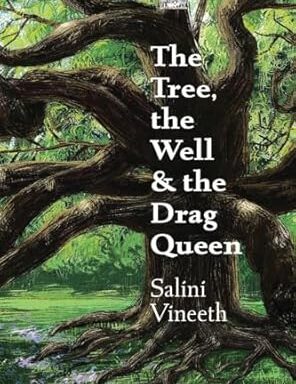
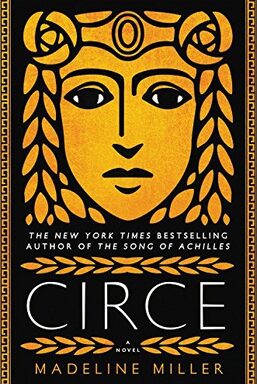
It is amazing how you paint such vivid pictures with your words and bring to life these tales from our mythology. I always enjoy reading your unique narration of the stories from our Puranas.
Thank you, Preeti. Your words fill my heart with joy.
I know the story pretty well, but written in your words, I relived my childhood memory of the tale of Ganapati. I have a special place for HIM always in my home, although I am a Sikh. He is the Remover of Obstacles as you rightly mention.
Thank you, Harjeet. He is a favourite deity of mine too. May He always help you deal with your obstacles!
This story reminded me why Ganapati holds such a sacred place in our hearts. As a mom, I deeply resonated with Parvati’s desire to be seen, valued, and heard equally.
Yes, indeed, Jeannine. We all want to be valued and recognised. The fight for femininism began when this stopped happening! Thank you for your kind words.
Each time I read your retelling of tales from mythology, I am amazed at my own reaction to them. It is almost like hearing the familiar tales for the first time . You keep me engaged till the end.
I’ve never really paid attention to the story until now. I realised that women have been fighting for their space for long and children are their way of reclaiming their position. Also, the divine too can be do headless stuff in a rage! Therefore, patience and backing off is the key to understanding the situation and then taking action.
You have such a beautiful imagery with you words. You took me straight to my childhood where my nani narrated me this story and I tried narrating to my father. I remember he got me CD of Ganpati’s story and I got to enjoy the visuals but after reading this blog I can feel not just the visuals but the feel too!
I being a part of the Occult Science world Have a different version and interpretation of the birth of Ganpati Bappa… which is no were related to connected to the one which are popular stories about the birth of Bappa. We Vizualize it as a medical advancement which were presented in a coated version in puranas for making it look magical and unbelievable to the followers. Well I am not going to discuss in detail on this segment…. perhaps in some posts in coming I may write on the hidden meaning behind the birth of our beloved Ganapati.
Oh yes, Samata. I would love to hear that version although I think I have a vague idea of this story. It would be great to read this version. Do write it.
I have read this version of the story multiple times yet it feels fresh even after reading so many times, and yet again it hurts to even imagine the situation that took place in God’s era.
Really liked how you told the story of Ganapati’s birth. It was easy to follow and still felt true to the original. Nice to see our old stories told in a clear, simple way.
What a compelling blend of narrative and spiritual reflection! The symbolism of the “big” universal ego replacing the small one hit me profoundly. A wonderful exploration of inner transformation.
Love the storytelling as usual. This is s very interesting story I tell my kids very often
I have heard and seen this story so many times yet your words painted a fresh vivid imagination whilr I was reading it. Absolutely loved it ❤️
This is such a beautiful mix of storytelling and spiritual thoughts. I love how your words bring these mythological stories to life. I always enjoy reading your simple and unique way of sharing stories.
The birth of Ganesha is one of my favorite stories. Loved the way you narrated it so beautifully. Great read.
I always enjoy the way you share the stories. I have head this one so many times before but reading your post was a different feeling. Looking forward to reading more from you.
A beautifully told version of Ganesha’s origin—loved the emotional depth, especially Parvati’s longing for equality and completeness. The narrative gracefully balances mythology with a powerful message on womanhood and identity.
Everytime I read a story which I already know of, but through your words, it warms my heart. Love it as always!
I had listened to this tale as a bedtime story. I love Hindu mythology and your narrative makes them even more interesting!
I have read this story so many times, but it was interesting to read your take on the why. Your mythological retellings are always a treat to read.
Such a powerful and emotionally grounded retelling. For probably the first time I’m reading a mytho post by you that I can actually remember reading or hearing sometime in my childhood. So firstly thanks for the recall. As to the way you told it, Parvati’s pain, resolve, and love really shone right through. Also, the Ardhanarishvara theme adds such depth to Ganapati’s origin
So beautifully written. I know this story but felt good to read it again through your words. I’m hoping you write about the story where Kartikeya and Ganapathi argue over who will go around the world first.
Oh yes, Varsh, have that story in mind too. Will definitely write it soon. Thank you for your lovely comment
It’s good to read the old story again! Thanks for writing it so well capturing all the details of this mythical tale.
I could have a pivture of it while reading. Love how you wrote!
Your writing skill is amazing. I feel like watching a movie… Keep going…
Looking forward to more stories
I didn’t know there are other versions of this story. This is the only one I have ever heard.